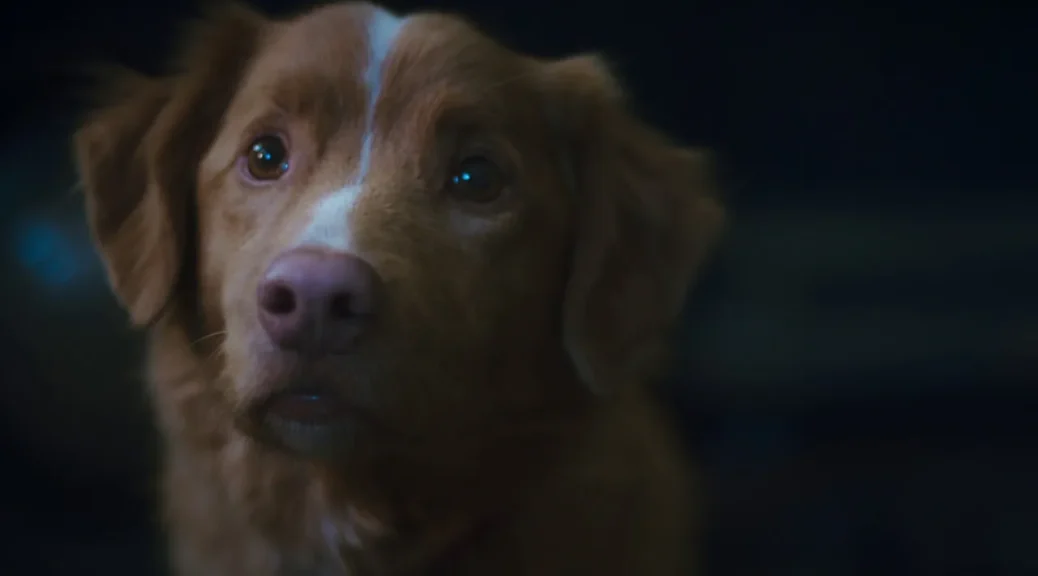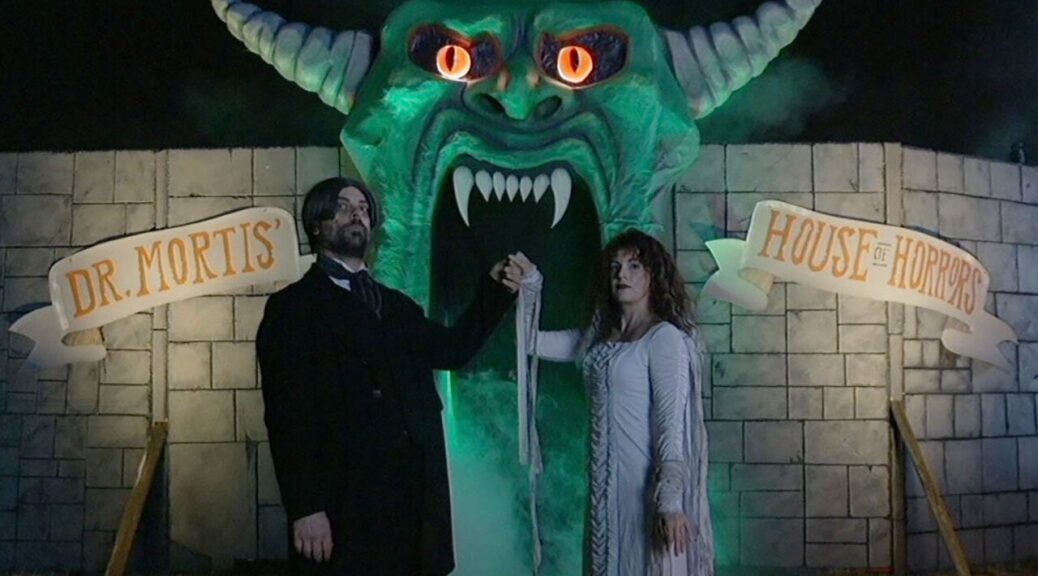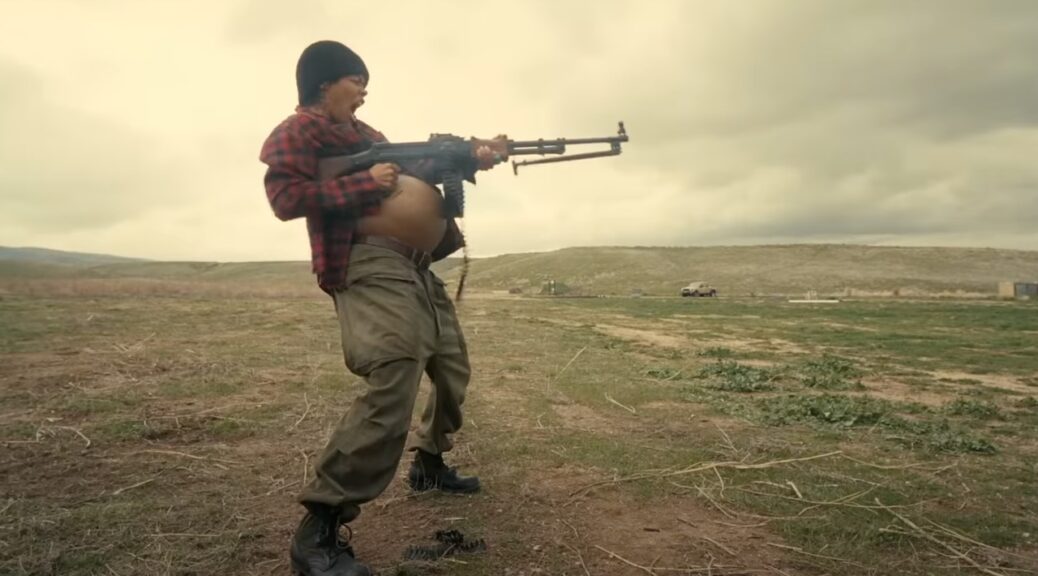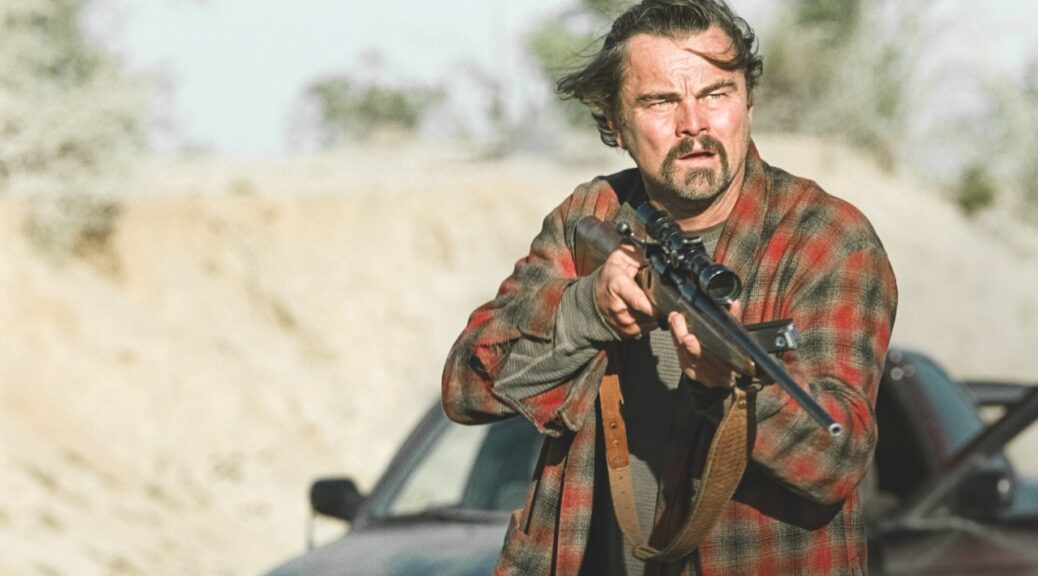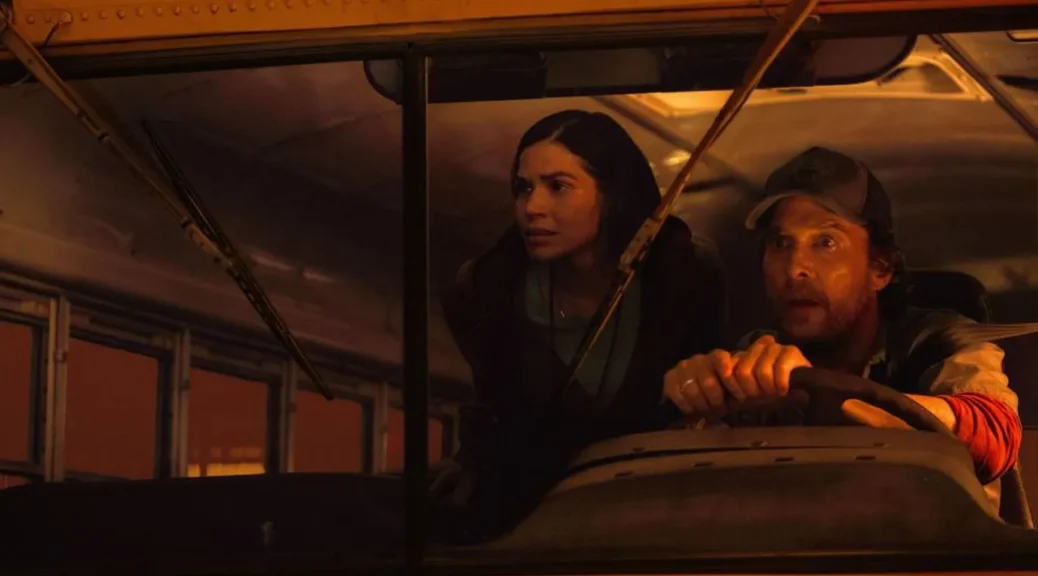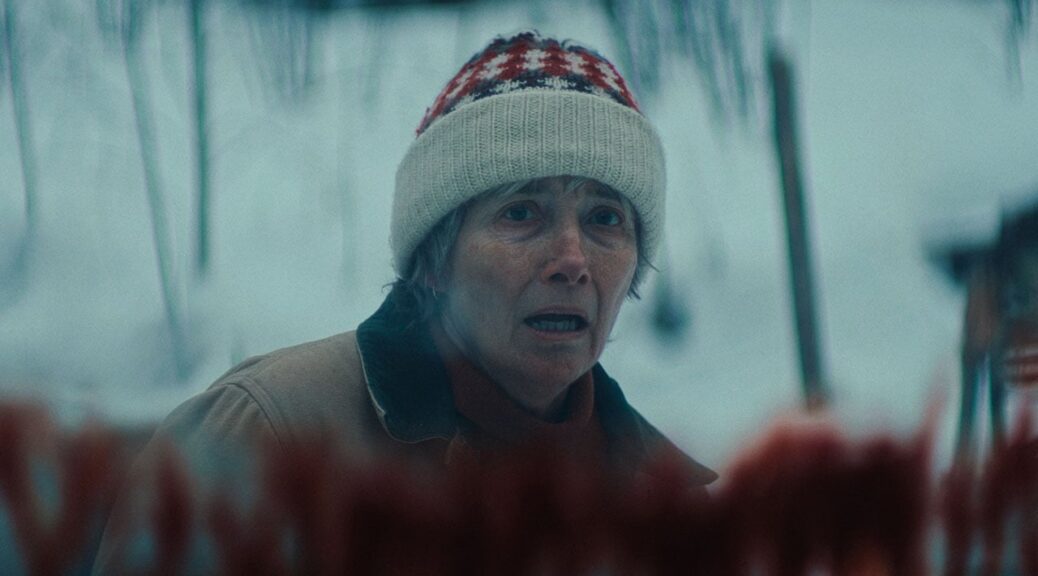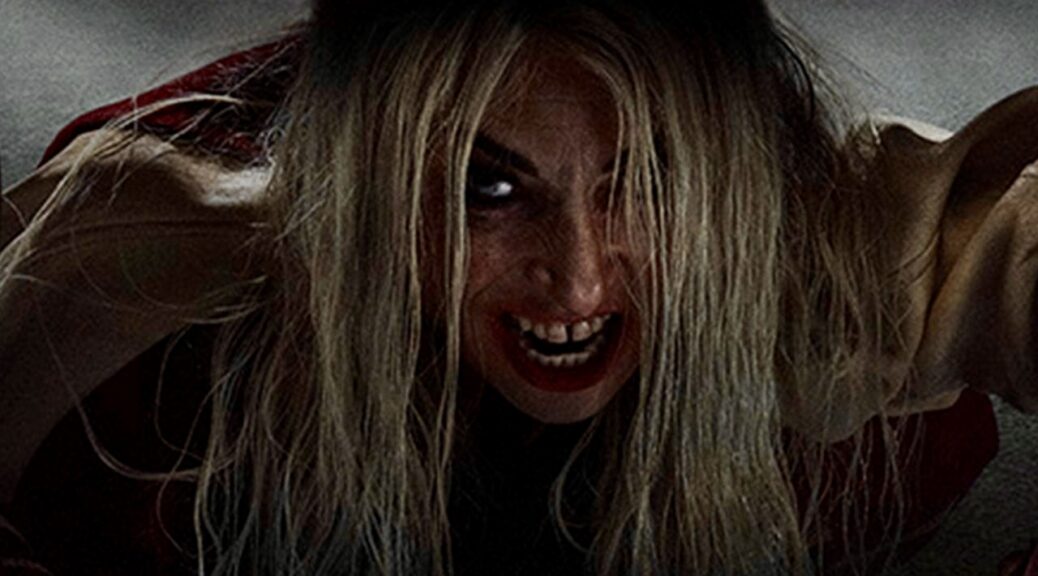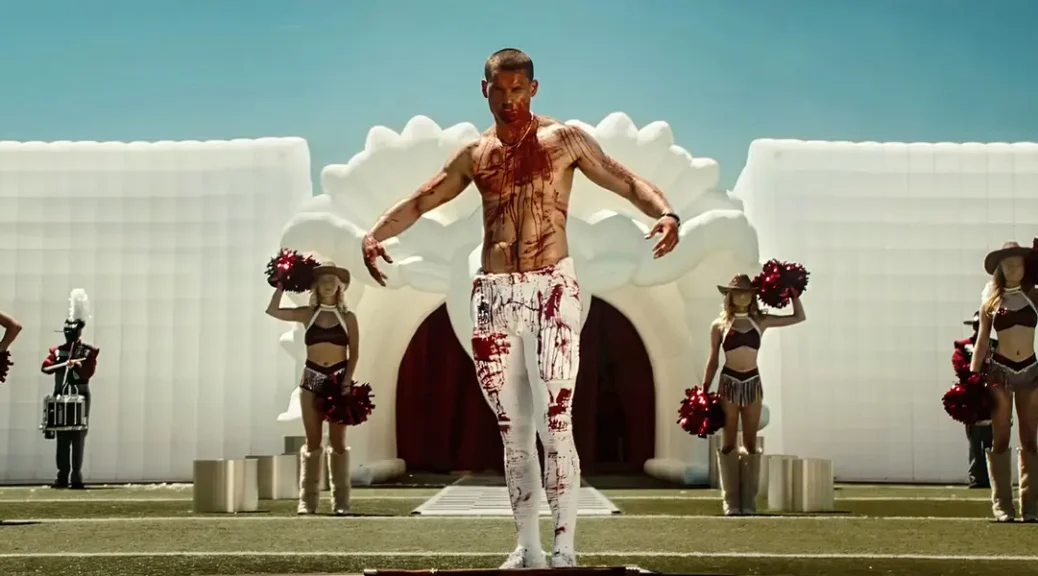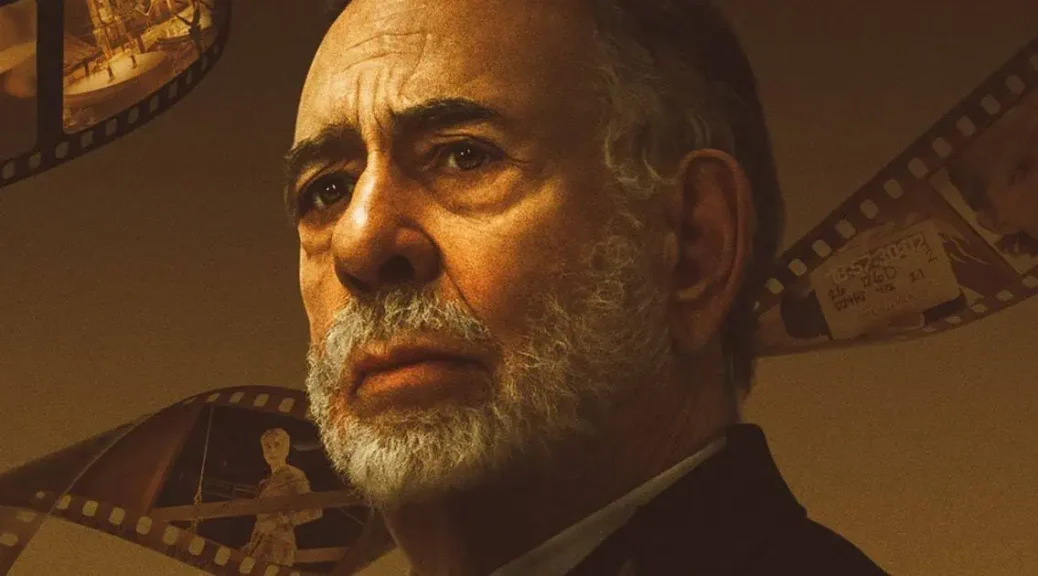Good Boy
by Hope Madden
I have a theory that the best way to make a horror film terrifying is to put children in peril. How better to ensure viewers are compelled, hearts in their throats, desperate for the heroes to prevail?
Co-writer/director Ben Leonberg may have discovered a more sure-fire way.
Meet Indy, a Nova Scotia Duck Trolling Retriever and an undeniably Good Boy. The dog is played by Leonberg’s own pet, also named Indy. I am not one to talk to the screen, but there were several times during Good Boy’s mere 72-minute running time that I heard myself saying, “No, no, no, no. Don’t do that, buddy.”
Because Indy and his dude, Todd (Shane Jensen), have just moved into Grandpa’s (Larry Fessenden) old place out in the woods. Todd’s in bad shape, physically. And even though folks say the old place is haunted, and even though Grandpa died here and his dogs all ran away or disappeared, Todd and Indy should be fine. Right?
The film works as well as it does because of Leonberg’s great gimmick. The story is told from Indy’s point of view. We know what he knows, which allows metaphor and supernatural to fold together seamlessly since no real exposition can be given. It also means that we never take our eyes off this beautiful dog, so we never stop worrying about his wellbeing, if he’s sad, is he cold out in the rain, is he scared?
Yes, Leonberg is out to break your heart, and his gorgeous retriever does just that.
There’s something unsettling in real life when your pet stares deeply at nothing and whines. Leonberg contemplates those shadows, the silence, the movement just outside the frame, along with Indy. The atmosphere he creates is deeply creepy and tinged with unendurable tenderness.
But a metaphorical supernatural horror story is tough to resolve satisfactorily when all we have to work with is the communicative abilities of a dog. No matter how darling that dog is.
Good Boy feels longer than its 72 minutes, and the metaphor at the heart of the story leeches away the true fear. It leaves you with heartbreak, which isn’t quite enough. But Leonberg’s film is an audacious feature debut and a worthy experiment.
